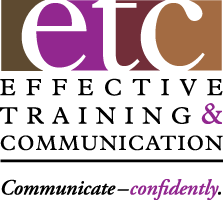Last month, we discussed how to make meetings work better by thorough planning. Assuming that you now do that, the next two steps are to meet as planned and then follow up thoroughly.
Be A Leader – The Meeting Management Phase
While effective planning is essential to a meeting’s success, how you manage that meeting will have a profound impact on its results. You want people to say “That’s the best meeting I’ve been to in a long time” … every time.
- Good meeting managers are also good time managers. Recognize the value of participants’ time by starting on time and ending on time.
- Review your objectives and agenda up front and revise as needed. Explain the various roles participants will have and define the “rules of engagement”. Manage the process closely but subtly to keep on track while allowing for effective group input and participation.
- Your role as meeting leader changes based on the type of meeting and group dynamics. Be prepared to be the “asker”, “teller”, “seller”, “facilitator” or “director” as needed.
- Anticipate potential disruptive behavior and deal with it quickly, tactfully but firmly. Minimize disruption and loss of subtle control that can result from the actions of a few “difficult” people.
- Try to assign taking notes or recording comments on flip pads to other group members. You have too much to do as meeting leader.
- At the end, summarize key points presented, review decisions made and emphasize assignments for next time.
Follow-Up – The Post Meeting Phase
Even after a well-planned and well-run meeting, important and often overlooked tasks remain.
- Send a concise e-mail summary to all participants quickly. Include key comments made, decisions and an initial agenda for the next meeting. Copy your manager and those who didn’t attend but are involved in the process.
- Follow up with people who have assignments or tasks for next time to help keep them on track. Your role is to remove obstacles, coach and support.
- Always strive to make your meetings better, shorter, more focused and more productive. Get input from participants periodically and listen to what they say. You can always make them better.
The quality of the meetings you conduct is a reflection of your ability as a workplace communicator, business professional and leader. So, start improving your meetings tomorrow with thorough planning, effective management and timely follow-up. You absolutely can make meetings work for you.
